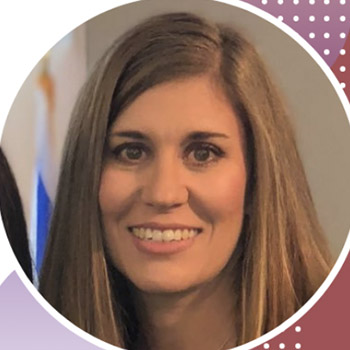


May 3-4, 2023 | Reno, NV
Access to this content requires approval.
Please watch your email inbox () for further instructions. You can expect to receive information regarding access within 1 business day.
Please watch your email inbox () for further instructions. You can expect to receive information regarding access within 1 business day.
You must add an organization to your profile before you can access this content.

May 3-4, 2023 | Reno, NV
Join us to discuss strategies that enhance tribal justice systems including essential information on court development; alcohol and substance misuse; probation, reentry and policing; and addressing violent crime. We will explore promising practices in multidisciplinary, multijurisdictional, and trauma-informed approaches to the development and implementation of justice programs.
Access to this content requires approval.
Please watch your email inbox () for further instructions. You can expect to receive information regarding access within 1 business day.
Please watch your email inbox () for further instructions. You can expect to receive information regarding access within 1 business day.
You must add an organization to your profile before you can access this content.
Event is approved by US DOJ. ***This draft agenda is current as of April 17, 2023.*** **Conference Schedule:** May 3 | 8:00 am - 5:15 pm Pacific May 4 | 8:00 am - 5:15 pm Pacific
* Affiliates from all federally recognized tribes working in courts, law enforcement, prosecution, probation/reentry, corrections, treatment, social service programs and victim services * BJA Coordinated Tribal Assistance Solicitation and Tribal Comprehensive Opioid, Stimulant and Substance Use Program grantees * Tribes/Tribal Partners *BJA-funded grantees may use existing travel funds in their grant budget to cover the costs to attend this training. Please contact your BJA Grant Manager if you need to reallocate grant funds to cover these costs.*
Grand Sierra Resort & Casino 2500 E 2nd St Reno, NV 89502 (800) 501-2651
Grand Sierra Resort & Casino 2500 E 2nd St Reno, NV 89502 (800) 501-2651 Reservation Deadline: The Guestroom Block will be held until Tuesday, April 11, 2023 at midnight- Pacific Time Group Res Id: AIJC23 Online reservations: [Click HERE](http://book.passkey.com/go/AIJC23) Reservations via phone: (800) 648-5080 Room Rate: $109/night Check-In / Check-Out: Check-in time begins at 3:00 P.M. Check-out time is 11:00 A.M If a guest booked within the room block checks out prior to the end of their booked reservation, then the guest will be charged an early departure fee of fifty dollars ($50).

Ashley Rodriguez is a Forensic Case Manager in the Forensic Services Unit pf the National Center for Missing & Exploited Children (NCMEC), where she manages a caseload of unidentified child cases spanning the western half of the United States. She has held this position since 2011. She first began her tenure at NCMEC as an intern, working within the Forensic Services Unit and closely with the Project ALERT program. After her internship, Ashley began working for America's Most Wanted as a Hotline Specialist. In October 2008, Ashley returned to NCMEC as an Assistant Case Manager in the Missing Children's Division. Ashley attended the University of Virginia in Charlottesville, Virginia where she ob¬tained a Bachelor's degree in Psychology and Cognitive Science in 2007.
Ashley Rodriguez is a Forensic Case Manager in the Forensic Services Unit pf the National Center for Missing & Exploited Children (NCMEC), where she manages a caseload of unidentified child cases spanning the western half of the United States. She has held this position since 2011. She first began her tenure at NCMEC as an intern, working within the Forensic Services Unit and closely with the Project ALERT program. After her internship, Ashley began working for America's Most Wanted as a Hotline Specialist. In October 2008, Ashley returned to NCMEC as an Assistant Case Manager in the Missing Children's Division. Ashley attended the University of Virginia in Charlottesville, Virginia where she ob¬tained a Bachelor's degree in Psychology and Cognitive Science in 2007.

Dr. Nandi is an instructor with the National Criminal Justice Training Center of Fox Valley Technical College. She is also the Chief Probation Officer for the 20th Judicial District for the State of Colorado. Additionally, Dr. Nandi is a published author having co-authored nine books.
Dr. Nandi is an instructor with the National Criminal Justice Training Center of Fox Valley Technical College. She is also the Chief Probation Officer for the 20th Judicial District for the State of Colorado. Additionally, Dr. Nandi is a published author having co-authored nine books.

Lieutenant (retired) Eric Nation began his career in law enforcement in 1994 and has held numerous positions. From 1996-2002, Nation was assigned to an undercover narcotics unit and from 2007-2012 was assigned as the Commander of the M.I.N.E. Taskforce – Eastside. Nation is a founding member of the Jasper County Drug Endangered Children Alliance, where he worked to build collaboration across multiple disciplines and worked to create a series of DEC response protocols; he is also a member of the Iowa Alliance for Drug Endangered Children Steering Committee and was a member of the National DEC Criminal Justice Working Group. Nation has trained thousands of professionals across Iowa, the United States, and internationally. He has participated in the United States Attorney General’s Defending Childhood Initiative, Working Group Meeting on Law Enforcement and Children’s Exposure to Violence in Washington D.C.
Lieutenant (retired) Eric Nation began his career in law enforcement in 1994 and has held numerous positions. From 1996-2002, Nation was assigned to an undercover narcotics unit and from 2007-2012 was assigned as the Commander of the M.I.N.E. Taskforce – Eastside. Nation is a founding member of the Jasper County Drug Endangered Children Alliance, where he worked to build collaboration across multiple disciplines and worked to create a series of DEC response protocols; he is also a member of the Iowa Alliance for Drug Endangered Children Steering Committee and was a member of the National DEC Criminal Justice Working Group. Nation has trained thousands of professionals across Iowa, the United States, and internationally. He has participated in the United States Attorney General’s Defending Childhood Initiative, Working Group Meeting on Law Enforcement and Children’s Exposure to Violence in Washington D.C.
Gil Van Attenhoven has over 29 years of law enforcement experience. He began his career with the Sacramento County Sheriff’s Department and spent the next 26 years with the CA Department of Justice, Bureau of Narcotic Enforcement (BNE). He held assignments in the Los Angeles and Redding Field Offices, was a Drug Task Force Commander and the Commander of the Campaign Against Marijuana Planting (CAMP) program, a statewide marijuana eradication task force. He retired as a Sr. Special Agent in Charge for DOJ. He spent the last six years as the Director of Training for the CA Narcotic Officers’ Association (CNOA). He is currently an instructor for the Department of Defense Counterdrug programs (MCTC, RCTA, WRCTC), the COPS Office, Bureau of Justice Assistance, CNOA and NCJTC. He was the president of CNOA in 2009 and a Lifetime Member. He also graduated from the FBI National Academy, Class 2009. He was appointed to the CA Commission on POST by Governor Arnold Schwarzenegger.
Gil Van Attenhoven has over 29 years of law enforcement experience. He began his career with the Sacramento County Sheriff’s Department and spent the next 26 years with the CA Department of Justice, Bureau of Narcotic Enforcement (BNE). He held assignments in the Los Angeles and Redding Field Offices, was a Drug Task Force Commander and the Commander of the Campaign Against Marijuana Planting (CAMP) program, a statewide marijuana eradication task force. He retired as a Sr. Special Agent in Charge for DOJ. He spent the last six years as the Director of Training for the CA Narcotic Officers’ Association (CNOA). He is currently an instructor for the Department of Defense Counterdrug programs (MCTC, RCTA, WRCTC), the COPS Office, Bureau of Justice Assistance, CNOA and NCJTC. He was the president of CNOA in 2009 and a Lifetime Member. He also graduated from the FBI National Academy, Class 2009. He was appointed to the CA Commission on POST by Governor Arnold Schwarzenegger.

Greg Brown has been working in the corrections field for over 32 years. He is the former chief probation officer in the 20th Judicial District of Colorado. Greg has worked with both adult and juvenile populations and in a variety of specialized programs. He has extensive experience in the supervision, treatment and management of juvenile and adult offenders, including domestic violence and sex offenders. In addition, Greg has spent considerable time developing specialized programs, including specialized enhanced domestic violence offender programming, a gender specific female team of officers with expertise in women’s issues, problem solving courts, standards, policies, restorative justice programs and best practices for the community based management of high risk offenders. Greg is a program manager with the National Criminal Justice Training Center at Fox Valley Technical College.
Greg Brown has been working in the corrections field for over 32 years. He is the former chief probation officer in the 20th Judicial District of Colorado. Greg has worked with both adult and juvenile populations and in a variety of specialized programs. He has extensive experience in the supervision, treatment and management of juvenile and adult offenders, including domestic violence and sex offenders. In addition, Greg has spent considerable time developing specialized programs, including specialized enhanced domestic violence offender programming, a gender specific female team of officers with expertise in women’s issues, problem solving courts, standards, policies, restorative justice programs and best practices for the community based management of high risk offenders. Greg is a program manager with the National Criminal Justice Training Center at Fox Valley Technical College.

Judge Lenzi is an enrolled member of the St. Regis Mohawk Tribe, a member of the Wolf Clan. She is the Chief Judge of the Winnemucca Indian Colony, Chief Judge of the Chemehuevi Indian Tribal Court, Chief Judge of the Cedarville Rancheria Tribal Court, and a conflicts judge for the Bishop Paiute and Yerington Paiute Courts. She serves on the San Manuel and Duckwater Shoshone appeals courts. She holds a B.A. in Criminal Justice from the University of Texas at San Antonio, and a J.D. from the UC Berkeley School of Law (formerly Boalt Hall). Judge Lenzi is a member of the California Bar as well as multiple tribal courts. Judge Lenzi has participated in tribal court evaluations as an evaluating member of Native Knowledge Harvest, LLC.
Judge Lenzi is an enrolled member of the St. Regis Mohawk Tribe, a member of the Wolf Clan. She is the Chief Judge of the Winnemucca Indian Colony, Chief Judge of the Chemehuevi Indian Tribal Court, Chief Judge of the Cedarville Rancheria Tribal Court, and a conflicts judge for the Bishop Paiute and Yerington Paiute Courts. She serves on the San Manuel and Duckwater Shoshone appeals courts. She holds a B.A. in Criminal Justice from the University of Texas at San Antonio, and a J.D. from the UC Berkeley School of Law (formerly Boalt Hall). Judge Lenzi is a member of the California Bar as well as multiple tribal courts. Judge Lenzi has participated in tribal court evaluations as an evaluating member of Native Knowledge Harvest, LLC.

For the past twenty years, Kelly Stoner has taught at the North Dakota School of Law and Oklahoma City University School of Law (OKCU) where she taught American Indian/ Tribal Law and Domestic Violence related classes. She directed the University of North Dakota Native American Law Project that served clients of the Spirit Lake Reservation with a caseload that targeted domestic violence and sexual assault cases. In 2011, Kelly was appointed as a Judge for the Seminole Nation of Oklahoma. She also supervised a project in partnership with the Apache Tribe of Oklahoma that established a SAFE Unit at a local hospital, recruited SANEs and targeted community education on domestic violence and sexual assault. She is a frequent lecturer for the American Bar Association’s Commission on Domestic Violence and for the Office on Violence Against Women’s national technical assistance providers on domestic violence issues in Indian Country.
For the past twenty years, Kelly Stoner has taught at the North Dakota School of Law and Oklahoma City University School of Law (OKCU) where she taught American Indian/ Tribal Law and Domestic Violence related classes. She directed the University of North Dakota Native American Law Project that served clients of the Spirit Lake Reservation with a caseload that targeted domestic violence and sexual assault cases. In 2011, Kelly was appointed as a Judge for the Seminole Nation of Oklahoma. She also supervised a project in partnership with the Apache Tribe of Oklahoma that established a SAFE Unit at a local hospital, recruited SANEs and targeted community education on domestic violence and sexual assault. She is a frequent lecturer for the American Bar Association’s Commission on Domestic Violence and for the Office on Violence Against Women’s national technical assistance providers on domestic violence issues in Indian Country.

Prior to joining NCJTC, he served as the Chief of Police with the Pueblo of Isleta Police Department. He has over seventeen years of law enforcement experience capitalizing on supervisory experience, operational management, staff development, administrative and finance management, motivational leadership and decision making. He served as the liaison between the Pueblo of Isleta, Bureau of Indian Affairs, and surrounding law enforcement agencies to build relationships and matters related to community safety. He has worked closely with diverse teams to successfully receive federal grant funding, implement Memorandum of Agreements, develop policy and procedures, and for implementing and managing the Sex Offender Registry Program.
Prior to joining NCJTC, he served as the Chief of Police with the Pueblo of Isleta Police Department. He has over seventeen years of law enforcement experience capitalizing on supervisory experience, operational management, staff development, administrative and finance management, motivational leadership and decision making. He served as the liaison between the Pueblo of Isleta, Bureau of Indian Affairs, and surrounding law enforcement agencies to build relationships and matters related to community safety. He has worked closely with diverse teams to successfully receive federal grant funding, implement Memorandum of Agreements, develop policy and procedures, and for implementing and managing the Sex Offender Registry Program.

Michael Coble, PhD, is an Associate Professor and the Executive Director of the Center for Human Identification at the University of North Texas Health Science Center in Fort Worth, Texas. He has over 100 peer-reviewed publications in the areas of forensic DNA analysis and interpretation, and is co-author of the book, “Forensic DNA Profiling: A Practical Guide to Assigning Likelihood Ratios.” He is a Fellow of the American Academy of Forensic Sciences and a member of the International Society for Forensic Genetics. Dr. Coble currently serves as a commissioner for the Texas Forensic Science Commission, is a member of the North Carolina Forensic Science Advisory Board and is an invited guest at the Scientific Working Group on DNA Analysis Methods (SWGDAM). He is a co-editor of the Forensic Biology subject area of WIREs Forensic Science journal and is a member of the editorial boards of Forensic Science International: Genetics and The Journal of Forensic Sciences.
Michael Coble, PhD, is an Associate Professor and the Executive Director of the Center for Human Identification at the University of North Texas Health Science Center in Fort Worth, Texas. He has over 100 peer-reviewed publications in the areas of forensic DNA analysis and interpretation, and is co-author of the book, “Forensic DNA Profiling: A Practical Guide to Assigning Likelihood Ratios.” He is a Fellow of the American Academy of Forensic Sciences and a member of the International Society for Forensic Genetics. Dr. Coble currently serves as a commissioner for the Texas Forensic Science Commission, is a member of the North Carolina Forensic Science Advisory Board and is an invited guest at the Scientific Working Group on DNA Analysis Methods (SWGDAM). He is a co-editor of the Forensic Biology subject area of WIREs Forensic Science journal and is a member of the editorial boards of Forensic Science International: Genetics and The Journal of Forensic Sciences.

Mrs. Parks has extensive experience working with tribal communities and leadership in the area(s) of tribal justice system planning, program development, economic development, business law, code development, child welfare, sex offender prosecution and management and domestic violence. Mrs. Parks is a licensed attorney in the state of Illinois and in the United States District Court for the District of North Dakota. Mrs. Parks is an appointed member of the North Dakota Supreme Court State and Tribal Court Committee. She has served tribal communities for more than fifteen years including as a member of the U.S. Department of Justice Violence Against Women Federal and Tribal Prosecution Task Force, and as the Chief Prosecutor for the Spirit Lake Nation.
Mrs. Parks has extensive experience working with tribal communities and leadership in the area(s) of tribal justice system planning, program development, economic development, business law, code development, child welfare, sex offender prosecution and management and domestic violence. Mrs. Parks is a licensed attorney in the state of Illinois and in the United States District Court for the District of North Dakota. Mrs. Parks is an appointed member of the North Dakota Supreme Court State and Tribal Court Committee. She has served tribal communities for more than fifteen years including as a member of the U.S. Department of Justice Violence Against Women Federal and Tribal Prosecution Task Force, and as the Chief Prosecutor for the Spirit Lake Nation.

Stacee Read has spent nearly 20 years working in the child welfare field, gaining insight and experience on a variety of key child welfare issues. Before working for National DEC, Stacee’s previous positions included the Associate Ombudsman position with the Office of Colorado’s Child Protection Ombudsman and the Child Protection Safety Specialist for the Colorado Department of Human Services and Child Abuse and Neglect Investigator. Stacee participated on the Fatality Review Team and was a key member of the Substance Exposed Newborns Steering Committee, the Rural Law Enforcement Meth Initiative, the CDHS Child Fatality Review Team, and the CDHS Prone Restraint Workgroup.
Stacee Read has spent nearly 20 years working in the child welfare field, gaining insight and experience on a variety of key child welfare issues. Before working for National DEC, Stacee’s previous positions included the Associate Ombudsman position with the Office of Colorado’s Child Protection Ombudsman and the Child Protection Safety Specialist for the Colorado Department of Human Services and Child Abuse and Neglect Investigator. Stacee participated on the Fatality Review Team and was a key member of the Substance Exposed Newborns Steering Committee, the Rural Law Enforcement Meth Initiative, the CDHS Child Fatality Review Team, and the CDHS Prone Restraint Workgroup.

Special Presentation by Eagle Wings traditional dance group
Tribal Law Enforcement Deflection and Youth Prevention: Camp Triumph: Session will provide an overview of how law enforcement diversion programs can benefit tribal communities. Case example: Camp Triumph. Camp Triumph is a week-long camp for children ages 10 – 16 who have been, or may be exposed to gangs, family trauma, or illegal drugs. It is a mentor-style camp run by the Isleta Police Department that encourages community building between campers and local law enforcement. Its goal is to provide kids the skills they need to make the right choices, while also building their self-esteem and sense of belonging. It offers both cultural education and physical activity to get kids moving and learning in a healthy and safe way.
Joint Jurisdiction Courts 101: An Overview - Tribal, state, federal and local courts have overlapping jurisdictions and face common challenges and resource limitations. To address these concerns, several jurisdictions have come together in a joint jurisdictional model that acknowledges each other’s autonomy, while sharing resources for better outcomes for everyone. This workshop will discuss what joint jurisdictional courts are, how they began, and how through different forms of intergovernmental collaboration tribes have been successful in operating joint jurisdictional courts.
Strategies for Improving State / Tribal Collaboration in Native American Reentry: This presentation will discuss will provide the history of the Reentry Toolkit and begin with an overview of the Reentry Toolkit. This will include defining what a Reentry Program is, the benefits and challenges of having a Reentry Program. The Reentry Toolkit serves as a guide for developing Tribal Reentry programs that incorporate indigenous teachings and evidence – based programs to prepare incarcerated tribal members and the community for the eventual return to the community. The Reentry Toolkit is a Five (5) part document.
The National Sexual Assault Kit Initiative: An Opportunity for Tribal Jurisdictions to Reduce Violent Crime through Sexual Assault Response Reform: Since 2015, the National Sexual Assault Kit Initiative (SAKI), funded by the Bureau of Justice Assistance (BJA) has supported 82 state, local and tribal jurisdictions seeking to improve their response to sexual assault by addressing unsubmitted sexual assault kits, supporting victims of sexual assault through enhanced services, and creating sustainable investigative and prosecution strategies. To date, SAKI sites have submitted more than 90,000 previously unsubmitted sexual assault kits for forensic testing, which has led to over 15,000 hits in the national CODIS DNA database. More than half of those hits have been to serial violent offenders, illustrating that most sexual assault offenders commit a variety of other violent crimes.
DEC Awareness - Identifying Drug Endangered Children: A Collaborative Approach: This training will help participants understand who drug endangered children are along with the risks and long-term impacts that are associated with parental and caregiver substance misuse and drug activity. Trainers will discuss the importance of and opportunities for early identification and intervention and the need for multidisciplinary collaborative efforts to identify and help these children. Trainers will provide examples that all disciplines can relate to and activities to assist in understanding this challenging topic. Trainers will help attendees understand that they have opportunities to change the trajectories of the lives of drug endangered children and break multigenerational cycles.
Collaborative Approaches to Addressing Collateral Consequences in Tribal Justice Systems: Collateral consequences of criminal arrests, charges, and convictions are restrictions, penalties, and sanctions generally not included in penal codes or sentencing guidelines, but resulting from criminal arrests, charges, and convictions under tribal, state, or federal law. Tribes and organizations serving Tribes are practicing innovative strategies to address the collateral consequences tribal members are facing. They are engaging in multi-system, collaborative approaches. Leveraging the knowledge of partners and stakeholders, tribal justice systems work towards meeting all the needs of their communities to prevent justice system involvement and to alleviate the effects of justice system involvement.
Introduction to Restorative Practices: This interactive restorative justice practices (RJP) basics session is designed for people new to the idea of RJP in the current criminal legal system context. Come get a foundational understanding of what it is, where it comes from and some ways it is currently being used.
Exploring the Correlation between Drug trafficking and Violent Crimes: This session will focus on the correlation between drug trafficking and violent crime. Faculty will highlight various violent crimes related to drug trafficking in tribal communities and will discuss how justice systems can respond to such violent crimes through federal-state-tribal collaborations, investigative procedures, code development, implementation of special tribal criminal jurisdiction and enhanced sentencing.
Tribal Juvenile Healing to Wellness Courts in Alaska – Building Tribal Capacity: Participants will learn about the efforts of Tribes and Tribal Courts in Alaska to prevent and interrupt the pipeline of Native Youth to state detention/prison in Alaska, through the establishment and operation of Juvenile Tribal Healing to Wellness Court dockets and programs. Participants will also learn about the unique challenges and needs of the Alaska Tribal Healing to Wellness Courts and strategies to build capacity, including in the role of the Wellness Court Judge, the role of the Wellness Court Coordinator, the role of the Treatment Provider, and the role of Supervision & Monitoring, and where there is a need to enter intratribal, intergovernmental and interagency agreements.
Cultural Integration in Developing Justice Programs: Culture is the cornerstone of any successful tribal justice program, but it’s sometimes treated as supplemental rather than essential. In 2019, the Catawba Nation received a grant under CTAS purpose area 2 to create a justice strategic plan, which it completed in 2021. The Tribe sought to include cultural practices at every step of the process, which helped them make cultural integration a top priority for all justice programs. This workshop will help attendees to identify areas to integrate culture at all steps of the planning process, from identifying traditional values at step one, to incorporating feedback from community stakeholders in existing programs.
The Role of Tribal Law Enforcement in the Missing or Murdered Indigenous Persons effort: This session will examine the legal options available to tribal police in reporting Missing or Murdered Indigenous Persons (MMIP) who were residing in Indian country at the time of their disappearance. The session will also explore the federal and state reporting options while also highlighting states that have developed positive tribal-state collaborations pertinent to the reporting of MMIP's.
Developing Best Practices and Protocols for the Investigation of Unresolved/Cold Cases: Long-term unresolved (or “cold”) cases are extremely impactful on living victims, families, friends, communities, and the law enforcement agencies responsible for the investigations. Despite their adverse impact, resources for law enforcement to investigate unresolved cases can be limited, which can make such investigations particularly challenging for tribal law enforcement and the American Indian and Alaska Native (AI/AN) communities they serve. A joint effort of the Office of Community Oriented Policing Services (COPS Office), the University of North Texas Center for Human Identification (UNTCHI), and the University of Tennessee Law Enforcement Innovation Center (UT LEIC) is supporting tribal law enforcement agencies in developing unresolved case efforts to identify, prioritize, and renew investigations to resolve and prosecute cases involving AI/AN victims and/or occurring on tribal lands.
Success Stories in Joint Jurisdiction Courts: Joint jurisdiction courts provide an example of how tribal and state collaborations can help to improve justice system services. Presenters will discuss their experiences in developing and working with a joint jurisdiction court. Each panelist will highlight the why the joint jurisdiction court they work with was formed, the types of issues and cases the joint jurisdiction court has been able to resolve and the impact of their respective joint jurisdiction court on the communities they serve.
Panel: Diversionary Courts & Programs: Incorporating Tradition and Custom into Tribal Justice Systems - This plenary will provide an overview for participants on the various ways in which tribes incorporate tradition and custom into tribal justice systems, including examples of integration of custom and tradition into tribal courts, diversionary courts and diversionary programs. Panelists will highlight examples from various tribal justice systems, programs and initiatives to demonstrate how tribes are relying upon tribal customs and traditions to address and meet the needs of court involved individuals.
Reducing the Stigma of Addiction: The stigma of addiction can discourage individuals from accessing needed treatment and healthcare services. It also negatively impacts the public’s perception of evidence-based intervention and treatment strategies. This session will explore the brain science behind addiction, common misconceptions about addiction, and strategies to assist tribal communities and service providers in reducing the stigma of addiction within their communities. This session will include a spotlight on one or more tribal programs implementing strategies to raise community awareness and break down barriers related to the stigma of addiction.
Inter-Tribal Court Collaboratives: This panel will focus on how inter-tribal court collaboratives are created, maintained, and sustained in order to best meet the needs of multiple tribal communities and individuals.
Introduction to Family Group Conferencing: Restorative justice practices in families can help address the harm of a variety of crimes from substance use to family violence. Trained facilitators support structured, difficult conversations among family members to help with healing. Come learn about how this restorative justice practice has changed lives and helped families.
Exercising Special Criminal Jurisdiction in the Alaska DV Arena: Participants will learn about Alaska’s unique legal landscape and the efforts of Alaska Tribes to address violence within villages. Participants will also learn about recent changes in federal law that reaffirm Alaska Tribes’ inherent sovereignty and create the opportunity to exercise enhanced criminal jurisdiction over non-Native people that commit violent crimes within villages.
Drug Trend Awareness to Support Tribal Justice, Part 1: The opioid crisis and the flood of other drugs has reached epidemic proportion in many of our tribal communities across the nation. This session will review key emerging drug trends with Fentanyl, Fentanyl laced pills and other substances being laced with fentanyl, heroin, methamphetamines, and other substances. Discuss specific challenges associated with vaping, butane hash oil, cannabis edibles. Explore the issues these “new drug delivery systems” have caused many states and tribal communities. Consider how particular drugs are designed and why the designs of these drugs are so popular. Review stages of use, addiction, withdrawal symptoms, and the health and life-threatening dangers posed from the use of these drugs. Discuss common delivery systems and observe examples of emerging drugs in various forms. Recognize the signs and symptoms of drug usage, as well as how Naloxone/Narcan works in cases of opioid overdoses.
Responses in Healing to Wellness Courts: Healing to Wellness Courts can be a way for individuals who are court involved and struggling with substance use disorders to begin a path of recovery. However, participants’ behavior may not always follow the “rules” of the program. This session will explore reasons why Healing to Wellness Court participants do not always respond with compliance; and explain how responding to participant behavior can begin at assessment, when therapeutic adjustments should be a response, and how culture and community connection can be a part of responding to participant behavior.
Developing Tribal Law Enforcement Diversion Programs: Collaborative partnerships between law enforcement, first responders, behavioral health, treatment and recovery programs, tribal courts, and other key stakeholders can be an effective means to help deflect or divert individuals with substance use disorders to treatment and recovery versus detention, incarceration or the emergency room. This session will review current trends in law enforcement deflection and program examples such as Law Enforcement Assisted Diversion (LEAD). Additionally, specific tribal needs, necessary stakeholders and resources to select a deflection program that will provide the most benefit for the tribal community will be discussed. Benefits of forming a multidisciplinary team to support a deflection program will be explored, and current tribal law enforcement led deflection and diversion programs will be discussed.
Intergovernmental Collaboration to Support the Prosecution of Crimes Against Tribal Police: This session will examine the need for federal-state-tribal collaboration to prosecute crimes committed against tribal police in the course of their official duties. In some situations, crimes against tribal police can be prosecuted by the federal government as crimes against federal officers while in other circumstances tribal or even state prosecution is necessary. In addition, now with the additional crimes Tribes can prosecute under the reauthorized VAWA Tribes could potentially prosecute crimes against police committed by non-Indians if committed in the course of domestic violence investigations or arrests. Session will get the perspective of federal, state and tribal officials.
Drug Trend Awareness to Support Tribal Justice, Part 2: The opioid crisis and the flood of other drugs has reached epidemic proportion in many of our tribal communities across the nation. This session will review key emerging drug trends with Fentanyl, Fentanyl laced pills and other substances being laced with fentanyl, heroin, methamphetamines, and other substances. Discuss specific challenges associated with vaping, butane hash oil, cannabis edibles. Explore the issues these “new drug delivery systems” have caused many states and tribal communities. Consider how particular drugs are designed and why the designs of these drugs are so popular. Review stages of use, addiction, withdrawal symptoms, and the health and life-threatening dangers posed from the use of these drugs. Discuss common delivery systems and observe examples of emerging drugs in various forms. Recognize the signs and symptoms of drug usage, as well as how Naloxone/Narcan works in cases of opioid overdoses.
Circle Peacemaking, Tribal Sovereignty, and Tribal Communities- Peacemaking begins at home: This session will cover the following topics: Indigenous Peacemaking as an option for settling disputes; The power of the circle and native language; Consensus building using tribal core values; Collective self-care for peacemakers and facilitators; Unity – Re-education through an indigenous lens and “holding each other up”
Working with Survivors - What is a Survivor Centered Approach?: What happens when someone is a victim or survivor of crime? How do they regain their sense of safety and power after that is taken away by harm? How do they get their questions answered and gain a sense of healing? In restorative justice practices we tend to survivors by centering their needs and facilitating restorative justice processes that serve them. In this interactive session come deepen your understanding of what victims and survivors need and how those needs get me through restorative justice practices.
Violence Against Women Act 2022 Special Tribal Criminal Jurisdiction: Provide an overview of the Violence Against Women Act Reauthorization Act of 2022 (VAWA 2022) and provide a detailed examination of the changes/additions made to the tribal provisions of VAWA 2013. Including jurisdiction over “covered crimes” including: assault of Tribal justice personnel; child violence; dating violence; domestic violence; obstruction of justice; sexual violence; sex trafficking; stalking; & a violation of a protection order. The ability of tribes utilizing the Bureau of Prisons will be discussed. In addition, the Alaska Pilot Program for Special Tribal Criminal Jurisdiction will be examined. Explore the issues tribes need to address if they are interested in exercising the Special Tribal Criminal Jurisdiction provisions under VAWA 2022. The session will discuss the assistance, guidance & benefits from the Intertribal Technical Assistance Working Group (ITWG) on VAWA and the tribal provisions.
Taking Care of Yourself – Secondary Trauma, Compassion Fatigue and Preventing Burnout: Secondary trauma, compassion fatigue and burnout can be a significant issue for tribal justice system professionals and service providers. It can take a significant toll personally and professionals, causing personal problems, impacting our effectiveness and prematurely ending careers, ultimately impacting services for tribal members. Discussion will include self-care and resiliency strategies.
Special Presentation by Eagle Wings traditional dance group

A hold has been placed on your account, which is preventing you from registering for this training. Please contact us at info@ncjtc.org or call us at 855-866-2582.

